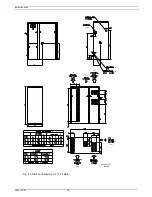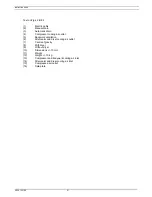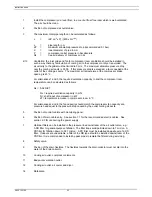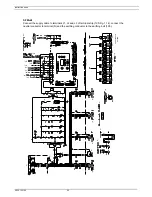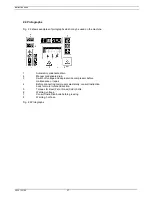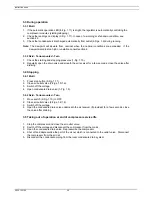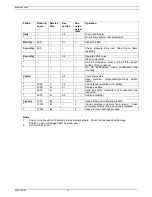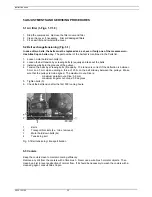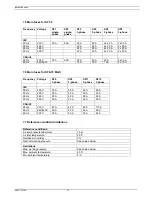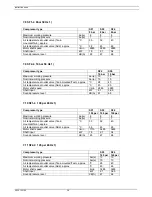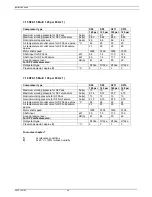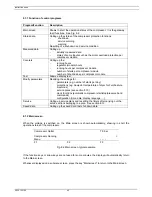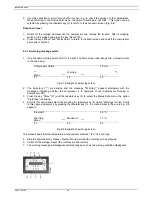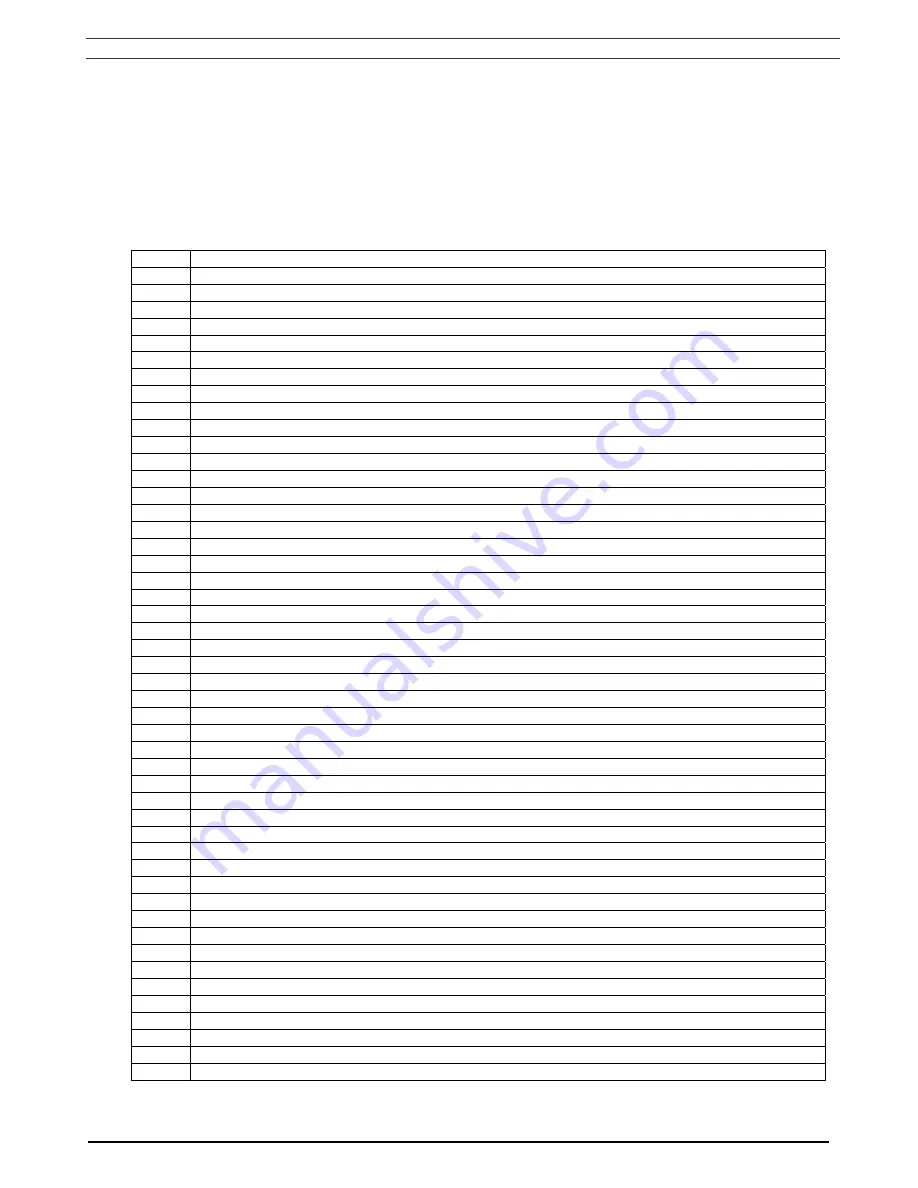
Instruction book
2920 1521 00
34
6 PROBLEM SOLVING
Before carrying out any maintenance or repair:
1.
Stop the compressor, switch off the voltage and open the isolating switch.
2.
Close the air outlet valve (2-Figs. 1.2/1.4 or 3-Figs. 1.5/1.6) and open the manual drain valve: valve
(1-Fig. 1.9) on Multi or the valve underneath the air receiver, if provided.
1
Compressor does not start
a Loose
connection
a
Have electrical connections checked
b
Receiver pressure too high
b
Compressor will start when the net pressure drops to the minimum pressure
2
Safety valve blows
a
Safety valve opens too soon
a
Replace valve
3
Compressor capacity or pressure below normal
a
Air consumption exceeds capacity of compressor
a
Check equipment connected
b
Choked air filter
b
Remove and check filter. Replace if necessary
c
Safety valve leaking
c Replace
valve
d
Drive belt(s) slipping
d
Check condition of belt(s). Correct or replace as required
4
Compressor module overheating / compressor shut down by its air temperature switch
a Insufficient
compressor
cooling
a
Improve ventilation of compressor room.
b
Cooling fan out of order
b Check
and
correct
On SF Full-Feature also:
5
Pressure dewpoint too high
a
Shortage of refrigerant
a
Have circuit repaired or recharged
b
Refrigerant compressor does not run
b See
7
c
Condenser pressure is too high
c See
6
6
Condenser pressure too high or too low
a
Fan control switch out of order
a
Have switch replaced
b
Condenser fan motor out of order
b
Have fan motor inspected
c
Ambient temperature too high
c
Improve ventilation. If necessary, draw the cooling air from a cooler room
d
Condenser externally clogged
d Clean
condenser
7
Motor of refrigerant compressor stops or does not start
a
Thermal protection of the motor has tripped
a Compressor
will
restart when the motor windings have cooled down

